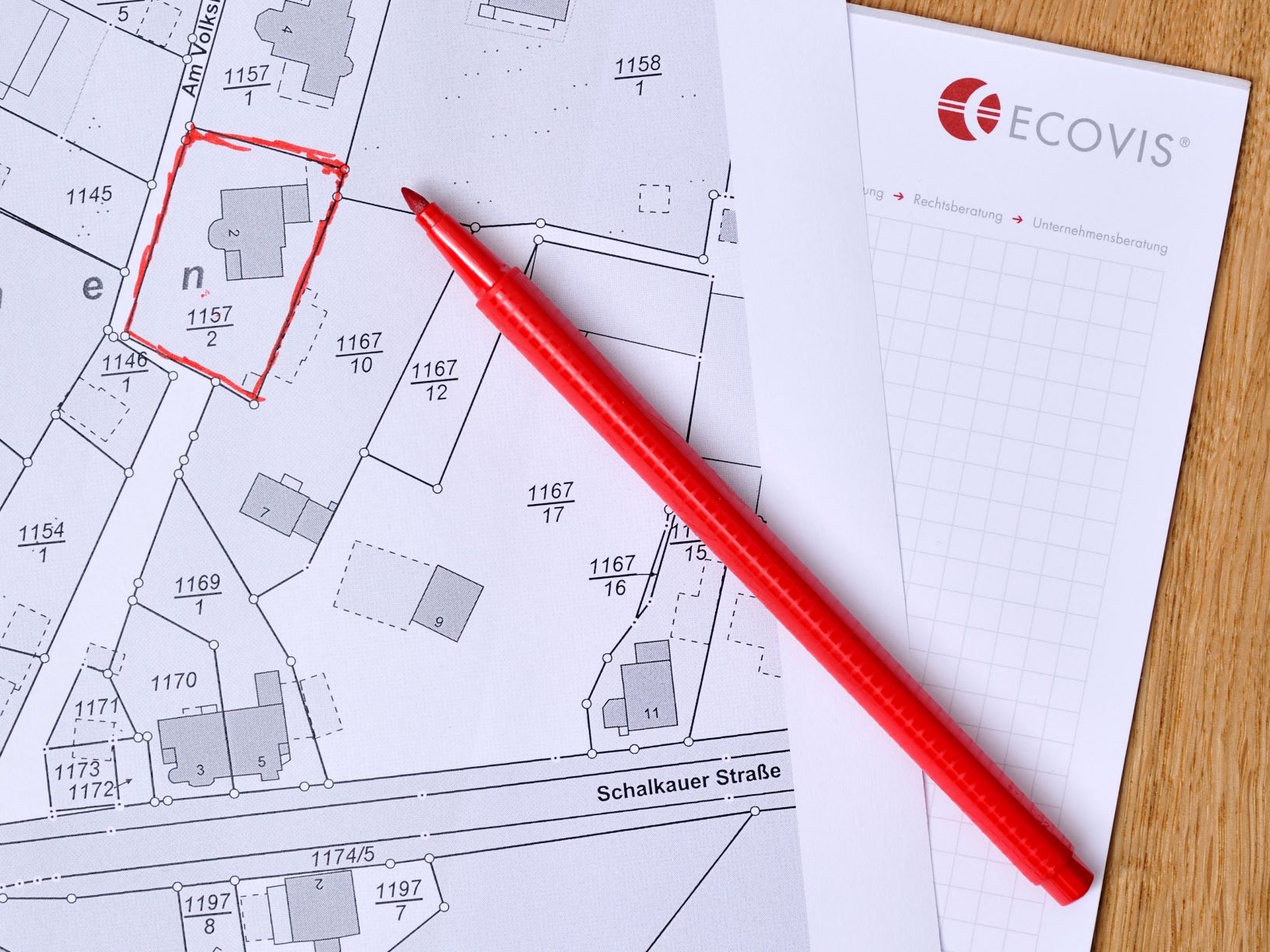Acquisition of a business by way of (i) asset deal and (ii) sale of a business (enterprise) in Czech Republic
This information is intended to provide a high level outline of the main legal and tax issues to be considered by a prospective buyer (“ Purchaser”) with respect to the available structures for the contemplated sale of the facility operated and owned by a company in the Czech Republic (“ Company”), consisting of the assets, rights and obligations and the related equipment (the“ Facility”).
Introduction
The most feasible options available to Purchaser under Czech law is usually the (i) sale of assets, or (ii) sale of a part of the enterprise of Company.
The legal framework for the sale of a part of an enterprise is contained in the Czech Civil Code whereas the sale of individual assets is not regulated as such and is effectuated under general contract law provisions. Each of these alternatives are explained and compared in more detail in Sections 2 and 3 below. Section 4 then deals with certain general legal considerations common to both alternatives and section 5 deals with tax issues. Finally, we provide a brief summary of advantages and disadvantages of both proposed alternatives in a chart below this article.
This information is not a detailed and complex analysis of the proposed alternatives but should assist with the preliminary decision on the preferred structure for divestment of the Facility. Due diligence review of the Company should be exercised with respect to identifying any actual legal or tax issues arising in connection with the contemplated transaction.
Sale of Assets in Czech Republic
Legal Framework in Czech Republic
The legal framework for the sale of individual assets forming the Facility is primarily created by virtue of contract. Under this structure, the contracting parties identify the assets (and any liabilities, if applicable) forming the Facility intended for sale which are then transferred under the general provisions of Czech law, either by a series of sale and purchase agreements, or by a single, complex agreement (It is possible to subject some of the transfers to other than Czech law, however in certain cases the application of mandatory provisions of Czech law cannot be avoided (e.g. transfer of real estate). Each individual asset (liability or other transferred item) must be specifically identified in order to be legally transferred. To the extent that an asset or a liability is not appropriately identified, such an item will not transfer to the buyer ( Given that most transactions involve the satisfaction of certain conditions precedent prior to closing, the contractual documentation in case of a complex transfer of assets must be structured in a way that the actual assets (and liabilities) are identified at closing. This usually involves the parties having to create a second set of schedules to reflect the changes in the assets/liabilities since the signing. As a general remark, identification of the assets and other items which are to be transferred can be administratively and technically demanding). We address the legal specifics of the typical components of Company’s business further below in the context of the usually contemplated sale of assets.
Rights
Under Czech law, rights (including ownership rights) are generally transferable. However, appropriate review should be undertaken to ensure that, in the case of contractual rights, there are no provisions prohibiting the transfer. For example, change of control or assignment clauses or similar stipulations seeking to “personalize” rights or the contract would be triggered.
In certain cases, Czech law distinguishes between the legal grounds for the transfer, usually a transfer agreement, and the actual transfer of (ownership) title, which requires an additional act of the transferor or a third person. Transfers of movable assets such as inventories, stock, computers, etc., require actual delivery in addition to a legally binding transfer agreement in order for the ownership to pass to the buyer, unless the parties agree otherwise.
Real estate ownership passes to the buyer only upon registration of the transfer in the land register maintained by the respective Cadastral Office.
In rem rights (e.g., mortgage, pledge, easement, pre-emptive rights) related to the transferred property pass by operation of law with the property in question.
Receivables are transferred by a simple assignment agreement, which must be in writing. The debtor’s consent to the assignment is not required ( Once the assignment is notified to the debtor by the assignor or proved by the assignee, the debtor is able to discharge itself from its obligation only by performance of its obligations to the assignee and not to the assignor).
Obligations
With respect to obligations, Czech law prohibits a transfer without the consent of the obligee/creditor. Until such consent is obtained, no legal transfer can be effected. Depending on the volume of the consents required, this can be a significant impediment since the obligee/creditor is under no legal obligation to give its consent.
Contracts
Contracts may not be assigned unilaterally and must be either novated (A legal term denoting a multi-party contract pursuant to which the original contract is transferred to the buyer) or re-negotiated. From Company’s perspective, this can be problematic, as it may be bound by long-term contracts. Depending on the wording of the contract itself, and if the other contracting party is not willing to novate or re-negotiate, Company and the buyer may agree on certain sub-contracting arrangements. Given the above, the transfer of individual/special contracts may prove rather demanding both administratively and technically due to the necessity of participation of the contractual counterparties.
Intellectual Property Rights
Intellectual property rights do not automatically transfer and must be transferred like any other asset. With respect to certain (registrable) intellectual property rights (e.g., trademarks), ownership title passes upon registration with the Industrial Property Office.
Employees
Given the extent of the assets to be transferred, there is a high probability that all employees connected to the activities of the Facility will automatically transfer to the buyer upon the transfer of individual assets forming the Facility ( Czech Labor Code, act No. 262/2006 Col., as amended (the “Labor Code“) states that if tasks and activities of an employer are transferred to another employer then the underlying employment relationships will also automatically transfer. Irrespective of the legal reasons of the transfer, or whether there was a transfer of ownership or not, the receiving employer is deemed to be the one who is capable of continuing in the performance of the tasks and activities that were transferred). Any contractual provision seeking to circumvent the above, will be invalid. General labor law provisions will apply to the termination of employment of employees during the periods prior to, and after, the sale, including mass redundancy regulation and obligations of Company to inform and consult its employees on the contemplated transaction.
Sale of a part of an enterprise in Czech Republic
Legal Framework in Czech Republic
The Facility could be alternatively sold as a part of the enterprise (The Czech Civil Code does not specifically define an “enterprise”, but the relevant provisions describe an enterprise as comprising the aggregate of all tangible, personal and intangible components making up a particular “business activity”) of Company. A part of an enterprise is a separate “organizational unit” of the enterprise that can be distinguished from other “organizational units” of the seller’s enterprise. Such a separate „organizational unit“ must be listed separately in the company’s accounts with precise stipulation as to which assets, rights and obligations pertain to it. Usually, an organizational unit has its own specified business activities and is designated in the internal regulations of the company. We assume that the Facility is sufficiently determined in terms of its location, organizational structure and separate set of (internal) accounts within Company that defining the Facility as a part of enterprise of Company should not be a problem.
A contract for the sale of a part of an enterprise must be in writing. In addition, the general meetings of both Company and the buyer, provided that the buyer is a corporation established under Czech law, must approve the contract on the sale of the part of the enterprise, irrespective of the amount of the purchase price. The sale of a part of an enterprise must be registered in the Czech Commercial Register.
The buyer of a part of the enterprise acquires, by operation of law, in particular (i) all rights and liabilities (Irrespective whether the rights and liabilities were known to the parties to a contract on sale of part of the enterprise) to which the sale of the part of the enterprise relates, this does not apply, according to the majority view, to any public law liabilities, in particular taxes; and (ii) all intellectual property rights related to the part of the enterprise, except for rights whose transfer would conflict with any agreement between the parties on the provision of a particular intellectual property right or the nature of such right.
With respect to the above, in case of sale of the Facility as a part of an enterprise not only the land, the plant and its equipment would be transferred to the buyer, but also other assets, contracts and liabilities connected with the Facility would pass to the buyer by operation of law (see below).
Unless the parties agree otherwise, the Czech Civil Code provides for a default procedure for determining the purchase price on the basis of the assets and liabilities in the accounting records for the part of the enterprise as at the date on which the contract of sale was signed, and other values stipulated in the contract. If the date of effectiveness is later than the date of signing, the price is adjusted based on any changes which have occurred. We address the legal specifics of typical or presumed components of the enterprise of Company in the context of the contemplated sale of part of the enterprise below.
Rights
Generally, the ownership title to the part of an enterprise is automatically transferred to the buyer as soon as the contract on sale becomes effective (i.e., on the day of signing of the sale contract, unless agreed otherwise). This applies to all movable assets, receivables and rights under employment relationships. By contrast, real estate and intellectual property rights subject to registration are transferred upon their registration with the Cadastral Office or Industrial Property Office, as applicable.
Obligations
Generally, all liabilities related to the part of the enterprise are transferred with the sale, even if they are unknown to the seller and/or buyer at the time of sale.
As mentioned above, this does not apply, according to the majority view, to any public law liabilities (e.g., taxes, customs, etc.) Tax and customs liabilities, and possibly also other public law liabilities of the seller, are not deemed to be related to the enterprise and, as such, will remain with the seller.
In contrast to the sale of assets structure, the consent of creditors for the transfer of obligations is not required.
As an important point to consider, the seller of a part of an enterprise by virtue of law guarantees the fulfillment by the buyer of the obligations that passed to the buyer with the part of the enterprise.
Contracts
Contractual rights and obligations are automatically transferred based on the principles described above. A detailed check should identify whether or not the relevant contracts contain rights of termination, for which such a transfer may be a triggering event, e.g., change of control clauses or similar stipulations seeking to “personalize” a contract, would trigger termination rights (General assignment clauses prohibiting an assignment of a contract would not be violated as the transfer occurs by virtue of law).
Intellectual Property Rights
Intellectual property rights connected to the enterprise are generally transferred, unless a transfer would be incompatible with any applicable licensing agreements. As stated above, if such rights are subject to registration (trademarks), the ownership title thereto passes only once registered with the Industrial Property Office.
Employees
Employees of the part of the enterprise automatically transfer to the buyer by virtue of law. Any contractual provision seeking to circumvent such a transfer will be invalid. In addition, general labor law provisions (including rules regarding mass redundancy and obligations of Company to inform and consult its employees), apply during the periods prior to, and after, the sale, so that any changes to the labor force should be carefully considered.
Creditors Rights
Creditors are entitled to file an objection with a court if the underlying sale of the enterprise makes it “undoubtedly more difficult” for a creditor to recover its particular debt. Based on this, the court may rule that the transfer of the seller’s obligations to the buyer is not effective in relation to that particular creditor, in which case the seller will remain liable for the particular debt. The seller shall be then reimbursed by the buyer upon the settlement of such debt. A creditor is entitled to file an objection within 60 days from the day it has learned of the underlying transaction, but in no circumstances later than 6 months from the date of registration of the transfer in the Commercial Register. In other words, the seller cannot be sure to have transferred all its obligations until 6 months after the registration of the transfer. Importantly, however, a successful objection does not have any influence on the validity of the actual sale contract itself.
General legal considerations
We further point out several specific areas which we, based on our knowledge of Company’s current situation, recommend to be considered with respect to the contemplated sale of the Facility.
Antimonopoly Office Approval
Under Czech antimonopoly regulation, the sale of the Facility either by way of sale of assets or by way of sale of a part of an enterprise could qualify for the obligatory notification to Czech Antimonopoly Office for the approval of the transaction, in case certain net turnover thresholds of Company and the buyer are met. In our understanding the turnover figures of Company suggest that the thresholds could be met (A transaction is subject to Antimonopoly Office approval in case the total net turnover of its participants achieved in the Czech Republic in the last accounting period exceeds CZK 1,500,000,000 (approximately EUR 60,000,000) and at least two of the participants achieved net turnover of at least CZK 250,000,000 each (approximately EUR 10,000,000) or the turnover attributable to the part of the enterprise being transferred exceeds CZK 1,500,000,000 (approximately EUR 60,000,000) and at the same time the worldwide net turnover achieved by another participant is higher than CZK 1,500,000,000 (approximately EUR 60,000,000)).
Trade and Other Administrative Licenses
In the Czech Republic every entrepreneur requires a general trade license. This is often supplemented with specific licenses, depending on the nature of the business. Official trade and business licenses are generally non-transferable. As a result, the buyer must procure new licenses to operate the part of the enterprise prior to the sale being consummated. A review of all existing official licenses held by Company should identify any duties of Company and the buyer with respect to the trade licensing authorities in connection with the contemplated transaction.
Environmental Permits and Licenses
As a general rule any environmental permits or licenses held by Company will not pass to the buyer with the Facility, unless this is specifically allowed by the appropriate legislation covering the specific license or permit in question (For example, under Czech law, permits to pollute air and permits to handle water (drawing, disposal of wastewater, etc.) would pass to the buyer in case of transfer of assets for the operation of which the licenses and permits were issued, the buyer of the Facility would still be under obligation to notify the respective regulatory authorities of the fact that the permissions have passed. Please note that further conditions might apply for the permissions to pass. On the other hand, the permits to handle dangerous waste, which might also be held by Company Czech with respect to its business activities, generally do not pass and the buyer would have to apply for such a permit prior to the closing).
Please note that currently we are not aware what environmental permits and licenses are held by Company and cannot, therefore, confirm whether these will or will not pass to the buyer or whether Company will have any specific obligations in respect of the contemplated transaction, therefore this is another area that would require checking.
Moreover, in case Company received any public guarantees with respect to environmental risks or pollution of the land, the validity and transferability of such guarantees would have to be checked with regard to the contemplated transaction.
Consents of Financing Banks
The sale of assets or sale of part of its enterprise by Company would need to be carefully considered in light of any pending covenants of Company or its affiliated companies under any applicable financing documentation.
As mentioned earlier, financing (and other) contractual documentation can contain clauses enabling the counterparty to engage various rights (including termination rights) in case of transfer of assets forming the Facility in either of the ways mentioned in this article.
Fulfillment of public support conditions
In case Company has benefited from any public support programs, such as investment incentives programs, it could still be under obligation to fulfill certain covenants it made in exchange for granting of such public support. Typically such covenants include the obligation to create and maintain a certain number of new jobs or creation of in rem pre-emption rights with respect to assets (typically land) purchased at a discount from the State or municipalities, or the payment of the full (undiscounted) price for the land in case the covenanted public support conditions are not maintained. We strongly recommend detailed review of any public support documentation with regard to identification of any potential obligations of Company or its affiliated companies in this respect.
Tax issues in case of sale of assets and sale of enterprise in Czech Republic
As noted above, the below discussed tax implications are of general nature and a revision of these should be made based upon a due diligence review of Company’s financial and tax position and the structure of assets subject to the contemplated transaction.
Sale of Assets
Generally, sale of assets does not trigger transfer of tax liabilities or other liabilities resulting from public law (E.g., liabilities towards customs authorities or towards authorities of social security and health insurance), unless otherwise noted below.
Corporate Income Tax
Proceeds from sale of assets represent income taxable at the rate of 19% ( Corporate Income Tax rate of 21% applies to 2008, 20% to 2009 and 19% to 2010 and thereafter). The tax residual values (i.e., the input prices less accumulated tax depreciation) of the assets would be deducted from this income for the purposes of taxation. Capital loss incurred on sale of assets is generally tax-deductible. Tax depreciation of assets subject to sale can only be charged (at Company’s level) at a decreased rate (50%) in the year in which the sale occurs.
In respect of assets which are, by operation of law, not subject to tax depreciation (e.g., land or receivables), the acquisition price would be deducted from the sale proceeds (income) for the purposes of taxation. In respect of these assets, a capital loss is not deductible. Also, such capital loss arising in respect of one such specific asset cannot be compensated with a capital gain arising in respect of another.
A tax loss (deferred tax asset), if present, cannot be transferred to the buyer and would remain with Company as the seller of the assets.
Value Added Tax
Sale of assets that occurs within the territory of the Czech Republic is generally subject to Value Added Tax (the “ VAT”) at the rate of 21%.
Such VAT is recoverable by the buyer provided that general conditions for VAT recovery are met on its side.
Please note that a risk exists that the tax authorities may reclassify the sale of assets to the sale of part of enterprise (being VAT-exempt – see below). This would result in an incorrect application of VAT by Company, as the seller, and denial by the tax authorities of the recovery of incorrectly applied VAT on the buyer’s side.
Subsidies, Investment Incentives etc.
As already noted in Section 4(e), in case Company participates (or participated in the past) in a subsidies program, an investment incentives program or in any other similar arrangement, regardless of its exact nature (a “ subsidy program”), it should be thoroughly reviewed prior to proceeding with the transaction, whether a sale of assets might (1) cause Company losing entitlement to the benefits arising under the subsidy program, both in the future and retrospectively, and/or (2) expose Company to a risk of penalties in that respect.
International aspects
Should assets be sold to a non-Czech entity, (1) withholding tax may apply to Company’s selling proceeds and (2) Company may be obliged to file a tax return abroad, both depending on the jurisdiction and on the applicable double taxation treaty.
Property Taxes
Future liabilities to property taxes connected to asset items subject to the sale would be transferred to the buyer. This applies to, e.g., Road Tax in respect of vehicles or Real Estate Tax (Real Estate Tax as a tax imposed on the real estate property owner is distinct from the Real Estate Transfer Tax that is being imposed on the seller of the real estate property at the occasion of its transfer) in respect of land and buildings. As mentioned earlier, past tax liabilities would remain with Company.
Sale of a Part of an Enterprise
In general, sale of part of enterprise has the same tax implications as the sale of assets. Therefore, below we comment only on those issues which make a difference between the tax regime of sale of part of enterprise and that of sale of assets.
Corporate Income Tax
The scheme of sale of part of enterprise allows the compensation of capital gains and capital losses made in respect of specific assets even in such cases where this is not allowed in the scheme of sale of assets (e.g., a capital loss made on the sale of a specific plot of land can here be compensated with a capital gain made on the sale of another).
As a result, the overall capital loss incurred in sale of part of enterprise is tax-relevant.
Value Added Tax
Under the Czech VAT Act, sale of part of enterprise is regarded neither as a supply of goods nor as a provision of service. It is therefore not subject to VAT.
By operation of law, the buyer, if resident in the Czech Republic, acquiring a part of enterprise for the purposes of carrying out entrepreneurial activities, becomes a VAT payer as of the day of the acquisition.
Please note, that a reclassification risk, as described above in connection with VAT applicable to sale of assets, exists also under this structure, only in reverse. The tax authorities may reclassify the sale of part of enterprise to the sale of assets (being subject to VAT); as a consequence the VAT exemption at the seller’s (Company) side would become incorrect and the tax authorities could assess additional VAT payable by Company. This risk should, however, be relatively low (This is because the Facility as a whole (being subject to the deal according to our understanding) should more likely be classified as a part of enterprise rather than as assets).
Review of basic advantages and disadvantages of the common acquisition structures in Czech Republic
| Sale of Assets | Sale of Assets | Sale of Part of Enterprise | Sale of Part of Enterprise | |
|---|---|---|---|---|
| Advantages | Disadvantages | Advantages | Disadvantages | |
| Transfer of obligations | No automatic transfer of obligations takes place. | Obligations that are not connected with the part of the enterprise will not pass. | Only obligations (known or unknown) connected with the part of the enterprise will pass. | |
| Existing legal regulation | There is no special legal regulation of transfer of a complex of items, including potentially also contracts and obligations. Contracts to be used will determined by individual items to be transferred. | Contract on the Sale of (Part) of Enterprise – section 476 et seq. of Czech Civil Code. | ||
| Participation of third (contractual) parties | Necessary participation of third parties (the counterparties under the contracts that will be transferred with the Facility) in the process of transferring the respective contracts to the buyer of the Facility. | Active participation of third parties is not required. | Possible termination rights under the existing agreements | |
| Definition of the subject matter of the transfer | Necessity to identify all individual items to be transferred, there is a risk that omitted items will not be transferred. | Individual items do not need to be specifically identified for the purposes of the transfer (identification of the par of the enterprise subject to transfer will suffice). | Necessity to identify the part of the enterprise subject to transfer. This is, however, less burdensome than identifying all individual items/assets to be transferred. | |
| Antimonopoly Office approval of the transfer | Necessity to apply for approval of the transfer subject to exceeding of statutory thresholds. | Necessity to apply for approval of the transfer subject to exceeding of statutory thresholds. | ||
| General Meeting approval and approvals by other corporate bodies | Approval of the transfer by General Meeting of Company is not required | Necessary corporate approvals on the part of the buyer of the Facility will depend on its corporate structure and requirements stemming from its Articles/Memorandum of Association. | By virtue of law a prior approval of the transfer by General Meeting of Company (and the buyer, if it is a Czech corporation) is required. Sale of part of the enterprise of Company must be registered in the Czech Commercial Register. |
|
| Passing of employees to the buyer | High probability that the employees of Company, whose employment is related to the operation of the Facility, will pass to the buyer of the Facility by operation of law. | Employees of Company working in the Facility will automatically pass to the buyer by operation of law. | ||
| Reclassification risk - VAT | Potential risk of reclassification of the sale of assets as the sale of a part of enterprise with an impact on the possibility of the buyer to recover VAT attached to the purchase price. | |||
| Tax deductibility of capital losses | Based upon the structure of the assets subject to the deal, non-deductibility of capital losses incurred in respect of certain assets (e.g., land or receivables) may arise. | Unlike the scheme of sale of assets, all capital losses should be deductible in this scheme. |
For more information, contact us at:
JUDr. Mojmír Ježek, Ph.D.
ECOVIS ježek, advokátní kancelář s.r.o.
Betlémské nám. 6
110 00 Praha 1
e-mail: mojmir.jezek@ecovislegal.cz
www.ecovislegal.cz
About ECOVIS ježek advokátní kancelář s.r.o.
The Czech law office in Prague ECOVIS ježek practices mainly in the area of Czech commercial law, Czech real estate law, representation at Czech courts, administrative bodies and arbitration courts, as well as Czech finance and banking law, and provides full-fledged advice in all areas, making it a suitable alternative for clients of international law offices. The international dimension of the Czech legal services provided is ensured through past experience and through co-operation with leading legal offices in most European countries, the US, and other jurisdictions. The Czech lawyers of the ECOVIS ježek team have many years of experience from leading international law offices and tax companies, in providing legal advice to multinational corporations, large Czech companies, but also to medium-sized companies and individual clients. For more information, go to www.ecovislegal.cz/en.
The information contained on this website is a legal advertisement. Do not consider anything on this website as legal advice and nothing on this website is an advocate-client relationship. Before discussing anything about what you read on these pages, arrange a legal consultation with us. Past results are not a guarantee of future results, and previous results do not indicate or predict future results. Each case is different and must be judged according to its own circumstances.














